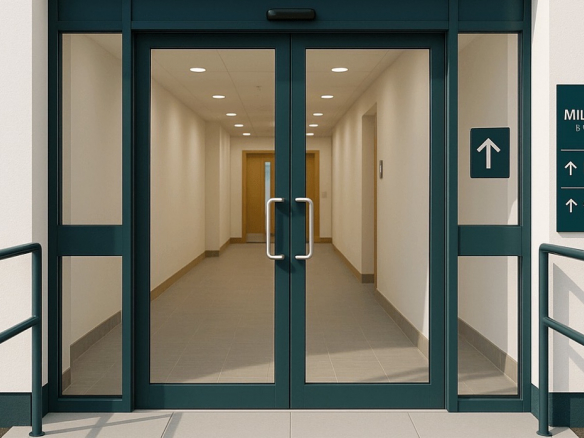Space Constraints Holding You Back?
When we founded Millfield Estates generations ago, we started with a simple mission: to provide businesses with the right spaces to thrive. Over our years working with companies across the UK, from Bolton to Mayfair, we’ve noticed a pattern. Many successful businesses struggle with recognising when they’ve outgrown their current premises.
As a family-owned property company with decades of experience, we’ve helped countless businesses make the crucial transition to more suitable spaces. The signs that you need to move aren’t always obvious, which is why we’ve compiled this practical guide to help you identify when it’s time to consider relocating.
1. Your Storage Solutions Have Become Creative Workarounds
Remember when everything had its proper place? When your inventory or equipment was neatly organised and easily accessible? If those days seem like a distant memory, this could be your first warning sign.
We regularly see businesses using corridors for temporary storage, creating makeshift solutions in staff areas, or renting external storage units as stopgap measures. While creativity is admirable, these workarounds often signal a fundamental space issue.
One of our office tenants in Liverpool initially used their server cupboard for archiving. Soon, files began appearing in staff break areas, under desks, and eventually in the manager’s car. When they finally moved to one of our larger floor plates, they were astonished at how much more efficient their operation became with proper storage facilities.
2. Your Staff Are Working on Top of Each Other
A bustling, collaborative atmosphere can be brilliant for business. However, there’s a fine line between collaboration and congestion.
Signs to watch for include:
- Employees struggling to find quiet space for calls or focused work
- Meeting rooms constantly booked, with impromptu meetings happening in corridors
- Staff complaints about noise or distractions
- Difficulty accommodating new hires
We witnessed this firsthand with a marketing agency at Yorkshire House. As their team grew from 8 to 15 people, productivity began to suffer despite their success. After moving to a larger office space with dedicated meeting areas and quiet zones, they reported a 30% increase in productivity within three months.
3. Your Business Model Has Evolved, But Your Space Hasn’t
Businesses evolve—it’s a natural part of growth. Perhaps you’ve added new services, changed your production methods, or shifted from purely online to incorporating physical retail. All these changes impact your space requirements.
A tech company in our South Molton Street property initially operated as a software developer, requiring only desk space and meeting rooms. When they expanded into hardware prototyping, their space couldn’t accommodate the necessary equipment. We helped them transition to a mixed-use space with both office and light industrial areas, allowing their business to continue its natural evolution.
4. Clients and Visitors Receive a Poor Impression
Your business premises create a crucial first impression. When clients visit, does your space reflect the quality and professionalism of your services?
Warning signs include:
- Apologising for your space when visitors arrive
- Struggling to find appropriate meeting areas for clients
- Limited parking or poor accessibility
- An address or location that doesn’t align with your brand positioning
5. You’re Turning Down Opportunities Due to Space Limitations
Perhaps the most telling sign it’s time to move is when your physical space actively constrains your business growth.
Have you:
- Delayed hiring necessary staff because you have nowhere to put them?
- Turned down orders or contracts because you lack production or storage capacity?
- Limited your service offerings because your current setup cannot accommodate expansion?
- Restricted your opening hours or customer capacity due to space constraints?
A warehouse tenant in our Bolton property initially operated with just-in-time inventory to manage within their space. When a major opportunity arose requiring stock holding, they nearly declined it. Instead, we facilitated their move to a larger warehouse within our portfolio, enabling them to accept the contract that ultimately doubled their business.
Making the Move: Practical Next Steps
If you’ve identified with several of these warning signs, it might be time to consider new premises. At Millfield Estates, we’ve guided businesses through this transition for generations, and we understand it can feel daunting.
Here’s our practical advice for approaching this decision:
- Quantify your current and future needs: Document exactly how much space you require for different functions, considering your 3-5 year growth projections.
- Prioritise location factors: Consider staff commutes, client accessibility, logistics, and neighbourhood amenities that matter to your business.
- Calculate the full financial picture: Look beyond just the rent to understand business rates, service charges, utilities, and potential productivity gains from appropriate space.
- Think flexibly: Modern businesses often benefit from adaptable spaces that can evolve with changing needs.
As a family-owned business ourselves, we understand the importance of finding the right home for your company. Our portfolio spans industrial estates, trade counter developments, retail units, and office buildings across the country—from Cramlington to London’s West End.
What sets our approach apart is our commitment to building genuine relationships with our tenants. We’re not just landlords; we’re partners in your business journey. This philosophy has resulted in exceptional tenant retention rates and has helped countless businesses find their perfect next home.
If you’re experiencing these warning signs and want to explore your options without pressure, our team at Millfield Estates is ready to have a conversation about how we might help your business find room to grow.
Whatever you do, don’t let your office get like this.




